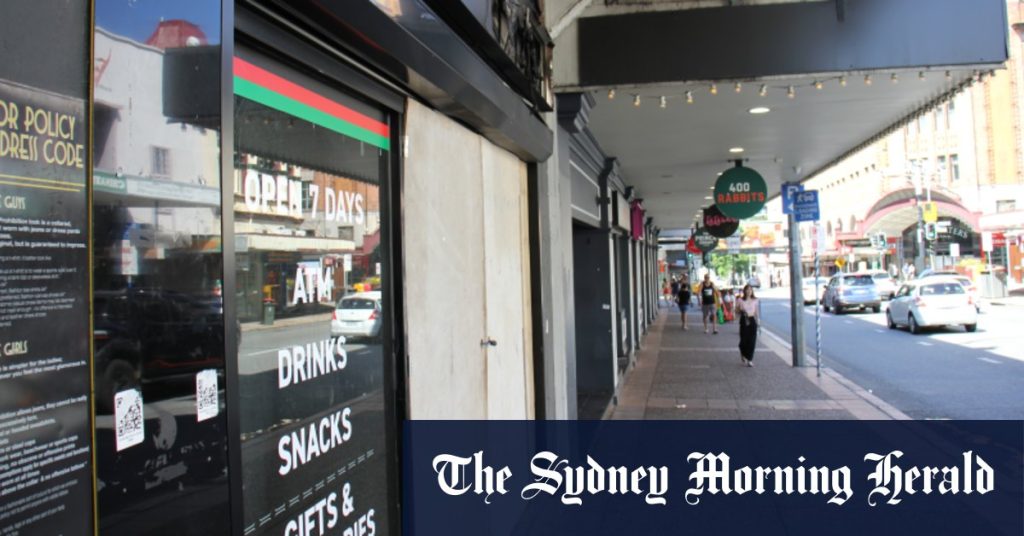The recent surge in targeted attacks against tobacco stores in Queensland has prompted a police investigation into potential connections between these incidents and the illicit tobacco trade. Authorities are concerned about the escalating nature of these attacks, which include a notable incident in Fortitude Valley that led to the deployment of dedicated resources to address the growing problem. The police are focusing on uncovering potential criminal links to the illegal tobacco market, recognizing it as a burgeoning issue within the state. While no direct connection has been confirmed between the attacks and the black market, the timing raises concerns given previous revelations about the widespread sale of illegal tobacco products in convenience stores across Brisbane.
The scale of illegal tobacco sales in Queensland is significant. Over a mere three-month period, authorities confiscated over five million cigarettes and over a tonne of loose tobacco from retail outlets. Thousands of illegal vapes and nicotine pouches were also seized, highlighting the breadth of the illicit market. Organised crime is believed to play a dominant role in the illegal tobacco trade, controlling an estimated 75% of the market. This organized involvement raises the stakes, potentially connecting the targeted attacks to a broader criminal landscape. The investigation into the tobacco store incidents is part of a larger effort by Queensland Health to enforce tobacco regulations, with hundreds of businesses currently under investigation and several facing prosecution.
The Fortitude Valley attack, while under investigation, does not imply any wrongdoing on the part of the targeted tobacco store, “Uncle Billy’s Tobacconist.” Police have categorized the fire as suspicious without assigning blame or suggesting involvement in the illegal tobacco trade. However, the incident underscores the vulnerability of tobacco retailers within this volatile environment. The broader issue of illicit tobacco sales extends beyond individual attacks and necessitates a multi-pronged approach, encompassing both law enforcement actions and public awareness campaigns. The focus on disrupting organized crime’s involvement is critical given their significant control over the illegal market.
The financial impact of the illicit tobacco trade is substantial, with billions of dollars in unpaid taxes lost annually across Australia. Last financial year alone, border forces seized over 1700 tonnes of illegal tobacco, equivalent to approximately two billion cigarettes, representing a significant loss of tax revenue. This revenue shortfall underscores the need for stricter enforcement and more effective strategies to combat the black market. Addressing the illegal tobacco trade not only protects legitimate businesses but also safeguards public health and secures essential government revenue. The growing prevalence of illegal tobacco sales also contributes to the accessibility and affordability of these products, potentially undermining public health campaigns aimed at reducing smoking rates.
The ongoing investigation into the targeted attacks against tobacco stores requires a thorough examination of potential links to the broader illegal tobacco trade, including the involvement of organized crime. A comprehensive approach encompassing investigative efforts, regulatory enforcement, and public education is crucial to address this complex issue effectively. Collaboration between law enforcement agencies, health authorities, and border control is essential to disrupting the supply chain and reducing the demand for illicit tobacco products. Additionally, raising public awareness about the dangers associated with the black market and the importance of supporting legitimate businesses is vital.
Addressing the root causes that drive consumers toward the black market, such as high tobacco taxes and limited access to legal products, may also play a role in mitigating the problem. While taxation is a crucial tool for discouraging tobacco use, finding a balance that discourages illicit trade while still generating revenue is a challenge. The long-term success of efforts to curb the illegal tobacco trade hinges on a multi-faceted strategy that addresses both the supply and demand sides of the market. Ensuring effective regulation and enforcement while also considering the economic and public health considerations will be crucial in achieving a sustainable solution.

